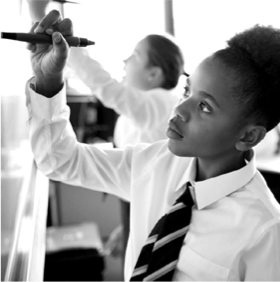Our Black Education in Britain programme is funded by Mission 44. The programme will delve into the barriers to education for Black pupils in the UK and make recommendations on what can be done to dismantle them, to enable children to reach their full potential.
The State of Black Education in Britain, a report developed by Black Equity Organisation (BEO), investigates the persistent challenges and systemic inequities facing Black pupils, parents, teachers and communities in the UK education system. Through an in-depth analysis, including focus groups and survey data, the report illuminates how power dynamics within schools disadvantage Black communities, limiting their influence, access to resources and representation. Drawing on the lived experiences of Black pupils, parents and educators, the report exposes the ways in which the education system perpetuates socioeconomic disparities and undermines Black communities’ empowerment within educational settings.

